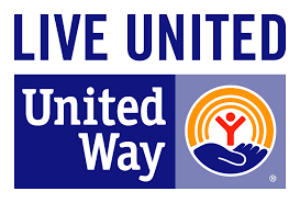A federal budget compromise reached this week will bring some sense of normalcy back to the federal budget process as nonprofit leaders gear up to make their case for federal funding, potentially clearing the congressional calendar to address comprehensive tax reform, including the charitable deduction.
The compromise averts another potential government shutdown in mid-January, if approved by Congress. House budget leaders announced the compromise this past Tuesday, ahead of a looming deadline and the Republican-led House easily approved the measure on Thursday. Senate Majority Leader Harry Reid (D-Nev.) said the Senate would consider the agreement on Tuesday before senators adjourn for the year.
The two-year agreement would put back into the budget $45 billion in sequester cuts that were scheduled to take effect in January, and another $18 billion that would’ve come down in 2015. The increase in discretionary spending during the next two years would be offset by long-term cuts to mandatory spending. The agreement provide a broad framework for $20 billion in discretionary spending but appropriations committees will have to hammer out details next month.
How much funding social service programs might receive remains to be seen but nonprofit policy folks at least are happy to be able to make their case.
“You can’t overstate the importance of the budget deal as a first step in Congress getting back to the normal funding process,” said Steve Taylor, senior vice president of public policy at United Way Worldwide (UWW). “While sequestration has been devastating for important social service programs, the fact that the process was so broken limited our ability to be able to advocate for programs that really worked well,” he said.
“With sequestration, we felt like our hands had been tied around our advocacy with Congress. With this deal, we may still have one hand tied behind our back, but at least we have one is free. We really are hoping that this is a start to getting back on track, so that we can do our work. It’s not just about disappointment that Congress hasn’t been able to do its work, it’s that sequestration has made it very, very difficult for us to do our work,” Taylor said.
In the normal budget process, even if Congress was cutting funding, Taylor said they could go to Congressional appropriators to argue the merit of a particular program. When the process is broken, everything just faces across-the-board cuts. “It doesn’t matter how good or effective the program is,” he said. With this budget deal, Taylor said they would be in position to meet with appropriators and talk about effective ways to use funding.
The good news is there isn’t going to be a government shutdown next month, so people won’t be turning to nonprofits to pick up the slack from government, said David Thompson, vice president of public policy at the National Council of Nonprofits. The “less bad news” is that sequester cuts – while still arbitrary – are less severe than before, he added. “The pie is $20 billion bigger, so that has to be good news for people served by various programs,” Thompson said.
The council has been calling on Congress to end arbitrary sequestration cuts and instead make the appropriations committees make the hard decisions on the budget. “That’s what they have to do in early January,” he said. “We may not like the outcome but the process is back to normalcy and that’s a good thing.”
With spending battles mostly set aside, Thompson said it clears the field for Congress to possibly address comprehensive tax reform next year. Whether it happens or not, there’s some good and some bad for charities in the proposals floating around D.C., but he warned that it also might district from important work going on at the state level.
Between now and mid-January, Taylor said United Way will meet with appropriators about the best way to allocate funding. After this week’s deal between budget committee chairman Paul Ryan (R-Wisc.) and Patty Murray (D-Wash.), the bulk of the work now will be passed to appropriations chairman Barbara Mikulski (D-Md.) and Hal Rodgers (R-Ky.), both of whom he described as rational and pragmatic when it comes to policy decisions on appropriations.
The deal that ended the federal government shutdown in October set three key deadlines, according to Taylor. The first was today (Dec. 13) for a budget conference deal; the second is for actual funding for the remainder of the 2013 fiscal year, Jan. 15; and the third is when the government hits the debt ceiling again, first expected to be in early February but now estimated to be sometime in March.











